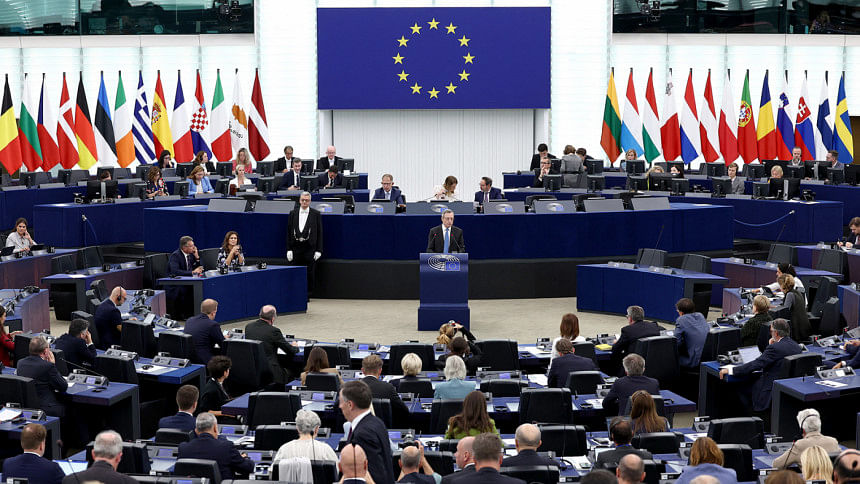Meta and Spotify blast EU decisions on AI

A group of companies including Meta and Spotify blasted the European Union Thursday for its "fragmented and inconsistent" decision-making on data privacy and artificial intelligence (AI).
The firms along with several researchers and industry bodies signed an open letter claiming that Europe was already becoming less competitive and risked falling further behind in the age of AI.
The signatories called for "harmonised, consistent, quick and clear decisions" from data privacy regulators to "enable European data to be used in AI training for the benefit of Europeans".
The letter takes issue with recent decisions under the 2018 general data protection regulation (GDPR).
Meta, which owns Facebook, WhatsApp and Instagram, recently halted plans to harvest data from European users to train its AI models after pressure from privacy regulators.
"In recent times, regulatory decision making has become fragmented and unpredictable, while interventions by the European Data Protection Authorities have created huge uncertainty about what kinds of data can be used to train AI models," said the letter.
A European Commission spokesperson said at the time that all companies in the EU were expected to abide by data privacy rules.
Meta has faced record fines for breaching the privacy of users, including a single penalty of more than one billion euros under GDPR.
As well as data privacy rules, Europe became the first regional bloc to frame major legislation aiming to stop abuses of the technology -- its AI Act coming into force earlier this year.
Meta and other tech giants have increasingly delayed products for the European market, claiming they were seeking legal clarity.
Meta delayed the EU-wide release of its Twitter alternative Threads by several months last year.
Google has similarly held back the release of AI tools in the EU.

 For all latest news, follow The Daily Star's Google News channel.
For all latest news, follow The Daily Star's Google News channel. 








Comments